
Horizon: Forbidden West (PS5) - Review
by Paul Broussard , posted on 06 March 2022 / 6,126 ViewsGet your crafting benches together and dust off those fast travel kits; the year of the sandbox is officially upon us. Zelda, Elden Ring, Forspoken, Sonic, Starfield, and likely more. And it all kicks off with Horizon: Forbidden West, a sequel to 2017’s Zero Dawn. If it’s possible for a game to go underappreciated while still selling close to ten million copies, Zero Dawn is it, as it had the dubious distinction of launching in the same year as Breath of the Wild. Fortunately, Sony made sure that the sequel will get the spotlight and attention it deserves by… launching it a week before the first open world From Software game. And in the same year as the Breath of the Wild sequel. You have to respect the bravery, if nothing else.
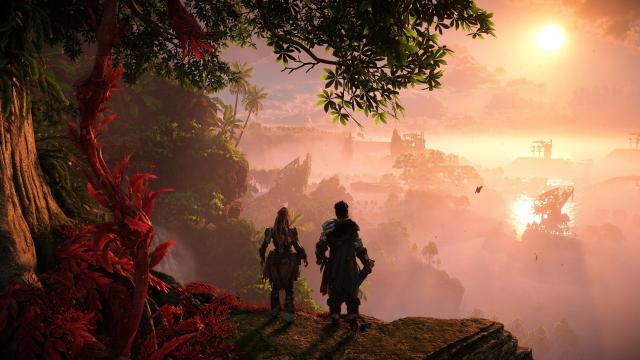
Speaking of brave, Forbidden West once again focuses on Aloy, the Nora Brave and now savior of the world. While I enjoyed Zero Dawn’s story, a lot of that was more for the lore and less the plot and characters themselves. While I’m certainly not about to ding Zero Dawn for not making Aloy asexual or whatever, I do think her character felt a little flat after the well done and presented opening act. While there were moments when you could see Aloy's personality really shine through (like yelling at Sylens), the vast majority of her conversations portrayed a fairly static, stoic character whose traits we were told about far more than actually shown.
Right off the bat, you can tell this is one of the areas Guerilla put a good deal of effort into improving in Zero Dawn. Aloy as a whole feels like a much more engaging character, with a fuller arc that focuses on her overreliance on herself and learning to trust others, as well as Aloy's coming to grips with her new role as a major diplomatic figure rather than just a warrior. We see a character who is starting to crack under the pressure of trying to save the world, and who slowly realizes that her own attempts to brute force her way through every situation with her own skill will inevitably break her. And the best part is that Forbidden West mostly does this without really feeling like the gameplay is taking a back seat to the story, at least outside of the admittedly paced-like-a-slug first hour or so.
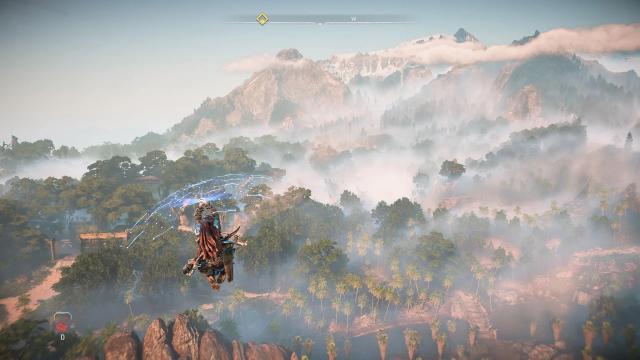
The narrative itself picks up a little while after the previous game’s ending. Turns out that defeating Hades at the end of Zero Dawn didn’t really save the world so much as postpone its collapse, thanks to the absence of Gaia, the AI responsible for maintaining life on post-apocalyptic Earth. Aloy sets off to the “Forbidden West” to attempt to find a backup copy of Gaia with which to keep life going, which of course isn’t going to be as straightforward as that. Along the way, she’ll run into opposition from various inter-warring factions, a new set of extremely dangerous antagonists that in my mind don’t get enough screentime for how intimidating they are, and Aloy’s own tendency to get distracted from saving the world by every random quest to grab 5 machine parts or 10 sets of squirrel intestines for some idiot who can’t be bothered to run their own damn errands.
Gameplay is probably what deserves the closest examination, as there have been a good number of changes since Zero Dawn. One of the things you’ll likely notice right off the bat is how expanded the RPG mechanics are, with a whopping six skill trees rather than the three present in Zero Dawn. Despite the bevvy of new skills, however, I don’t think this is a game where you’ll really be “building” a specific playstyle. Melee and ranged combat both complement each other well, and trying to rely on one exclusively is like trying to have Austria without Hungary, and stealth simply isn’t an option too much of the time to be a practical place to primarily invest points. In short, don’t feel pressure to pick something and stick with it; Aloy functions well with a variety of skills and I think she’s intended to work as such, especially given how liberal the game is with skill points.
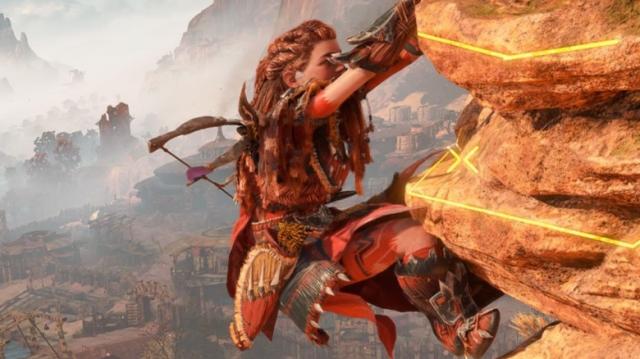
The individual skills certainly flesh out what you could do in the previous game quite a bit. Melee has probably seen the most dramatic improvement overall, now being a fairly substantial hack and slash system. In addition to her standard three hit combo strings, Aloy has aerial attacks, dashing attacks, and jump cancels of all things. Landing a three hit string, jump cancelling it to bypass the usual end-lag of the final swing, and then continuing with an aerial and landing attack is immensely more satisfying than anything melee based in Zero Dawn. It’s kind of a disappointment though that it becomes rather useless against many of the virtually unstaggerable late game enemies that will treat you like a journalist in a Saudi consulate if you attempt to fight them up close.
Ranged combat functions pretty similarly to the prior installment, although there’s a much greater emphasis this time around on status effects. There are far more arrow types and weaknesses for the various enemies in Forbidden West, and making effective use of those is a good way of defeating enemies more quickly. It turns it into a more complex elemental flowchart where you try to take advantage of weaknesses, and I'm not sure I'm a fan of that. Adding a bit of complexity is good, but at the end of the day this mechanic doesn't test much more than your ability to acquire and select the weapon with the poison arrows or whatever. I think the next installment might benefit more from having fewer arrow/elemental weakness types and more unique ways to exploit them on bosses; perhaps hitting a weak point on a boss that's vulnerable to ice ice could allows you to instantly shatter a body part with one melee attack or something. I'm sure professional game designers could do a lot more with this, but ultimately I just wish status effects were more than a game of "hit the enemy with enough arrows that it's weak to and then they get staggered momentarily and/or start to take damage over time."
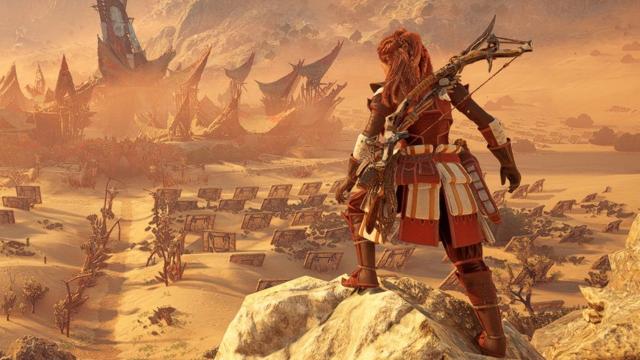
There are a couple of new tools that are briefly worth mentioning, if nothing else. The paraglider that is now endemic to open world games has officially come to Horizon, meaning Aloy can glide and slow her fall from high places. And there’s also a grapple hook, which gives Aloy the ability to grapple onto the contextual button prompts that the game occasionally throws around. Both of these are fine, but don’t really add a whole lot to the experience.
Despite the range of improvements, I still have a couple of quibbles from Zero Dawn that I think still hold over. While I appreciate the attempts to characterize Aloy in gameplay by having her vocalize her thoughts, both Horizon titles have leaned on this lever much too hard for my liking. It’s one thing to do this as a means to develop a character, but something else entirely when it begins to affect gameplay. It’s great that Horizon tries to break up the flow of gameplay with some occasional puzzle solving segments, and absolutely infuriating that Aloy frequently ruins it by vocally spelling out the puzzle solution for me if I don’t solve it within a couple of seconds. At the very least, there should be an option to turn this sort of passive hint system off.
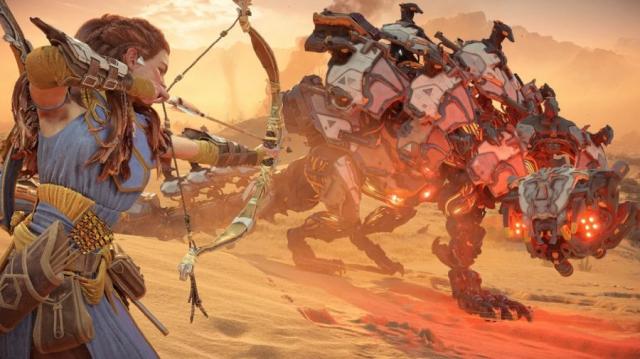
Another frustration that carries over is how inconsistent the world feels at points. What I mean by that is, at certain points, Aloy will make death-defying leaps over a solid ten feet to grab onto a ledge and hang on by a single hand. At other times, jumping off will result in a pathetic little hop that I could probably do better myself. And the only difference between these scenarios is whether there is some sort of “designated climbing point” that is either colored orange or now glows orange on your Focus. The red “stealth grass” that returns is another example of this; you can be buried inside foliage and shrubbery and still get spotted, while being in the “stealth grass” is enough to avoid detection when a machine is right next to you even if your head is obviously poking out.
It makes the world feel less natural, in a way; as if Aloy’s well-honed climbing or sneaking abilities suddenly vanish when she’s not in the presence of the color orange or red respectively. Granted, the alternative extreme of “let people climb anything” comes with its own challenges and drawbacks, and Guerilla may have ultimately decided it wasn’t worth the trade-off. Still, it’s hard for me to feel like climbing in these games is less of a gameplay mechanic and more just a set of glorified contextual button presses, and stealth is not much more advanced than that.
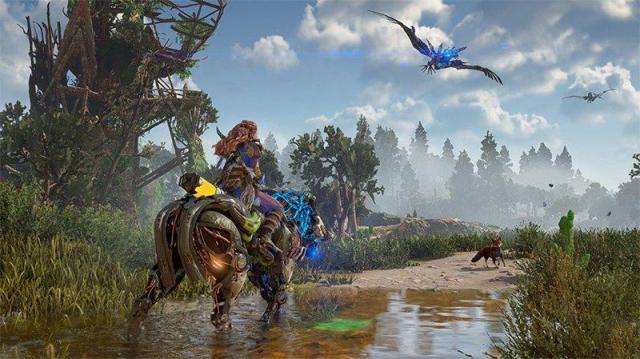
Conversely, side quests have seen improvement; I do like the greater emphasis on getting the story involved and having it relate to the wide variety of supporting characters’ ongoing struggles in some way. It’s a good step up from Zero Dawn’s fetch quest bonanza. While there are still are plenty of quests that do fall into the “collect X amount of items” category, there are also quite a few that go well beyond that. One of my favorites is a not particularly long but nonetheless engaging quest that focuses around a well becoming dried up, and the political tensions that arise. It’s a good example of how much a little story context can add to an otherwise relatively simplistic activity. And there are plenty of other side activities as well, from some contract type missions to melee pits that challenge your skill at close quarters combat.
However, the way that main quests are structured feels like something of a step down. One of the things that Zero Dawn did so well, in my opinion, was to have the story unfold along with each quest. In other words, nearly every main quest the player completed revealed something about the world. There was a mystery in front of us, and Aloy’s goals kept changing as we discovered more about the world with each completed activity. Forbidden West, on the other hand, not so much. The story is structured in a very fetchquest-y way, where our main goal is pretty much set before us at the very beginning and the game simply throws a new barrier in our way every 15 or so minutes. While there’s still plenty to discover about the world, I found myself less enthusiastic about going on story missions this time around, as they were usually just another barricade the game erected to delay me from a previous objective.
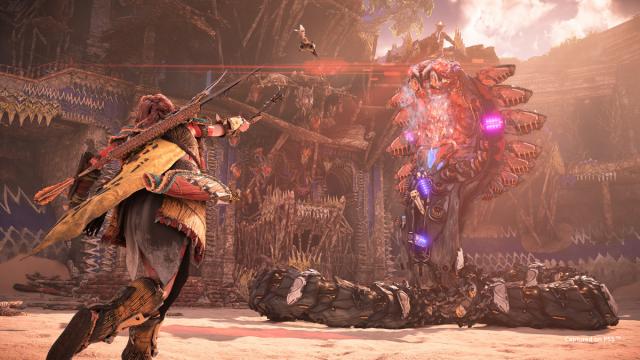
I’ll throw a minor spoiler warning here before giving an example of this. A few hours into the story, Aloy secures a backup copy of Gaia. However, it’s missing three critical subordinate functions, so we need to go hunt those down across the world. To get one of them, we have to talk to Dekka, a local chief, but he refuses to let us have it until we help him. So we volunteer to go with one of his subordinates to try and talk a tribe into lending their military support. But the tribe isn’t interested while they feel like the current conflict poses no risk to them, so we have to blow up their fortress to demonstrate how insufficient their defenses really are and basically coerce them to help. To do THAT, we have to go steal a cannon that’s on top of a boss. It’s a fetch quest with so many layers I genuinely forgot what the main point was by the end of it, and while this is one of the more extreme examples, this sort of fetch quest upon fetch quest design is pretty routine.
Forbidden West is a beautiful game, with some genuinely fantastic art design and character models. Perhaps the biggest aesthetic improvement is having the option to play it at 60 FPS. I’m not sure I could ever go back to playing Horizon at 30; 60 FPS vastly improves the experience and whatever drop in resolution occurs as a result is easily worth it in my opinion. There's a variety of new character designs too that make the various allies and enemies Aloy comes across visually interesting. Some of my personal favorites come from the primary antagonists of the story and the machines at their disposal; without wishing to spoil, the way they move and how different they look from everything else is very visually impressive.
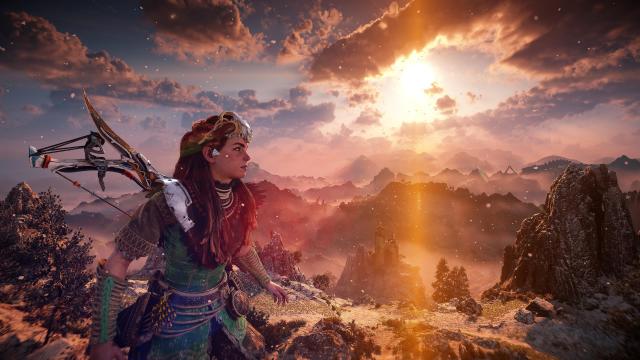
I will say I was slightly disappointed with the biomes on display; much of the territory feels very reminiscent of Zero Dawn. Maybe it's unreasonable to expect a variety of fresh looking terrains in a sequel to a game that had tundras, forests, deserts, plains, and plenty of villages, but at the very least I think I would have liked to have spent a little more time in the ocean/bay environment, which has some truly gorgeous visuals. As it stands, the biome predominantly featured in trailers and marketing is the only one that feels particularly distinct from Zero Dawn, and only the tail end of the story is spent there.
In the midst of a number of popular open world games that seek to reinvent the wheel, Horizon has instead chosen to polish and refine the typical open world format. And that’s not a bad thing at all; while innovation is important, I’d argue iterative improvement is just as important. Titles like Super Mario 64 and Doom may be the most innovative, but without games like Super Mario Galaxy and Doom Eternal we wouldn’t get the chance to see the full potential of those concepts. However, I don’t feel like Horizon is there just yet. It comes close; there’s a lot of stuff here done very, very well, and it's certainly worth a purchase if you're a fan of the genre, but unfortunately it still makes a number of crucial mistakes that narrowly hold it back from greatness.
VGChartz Verdict
7.5
Good
This review is based on a copy of Horizon: Forbidden West for the PS5
More Articles
MINOR SPOILERS AHEAD!
I'll be honest: while there are only so many games the two of us both wind up playing, I will say that, of those we both do, I often find your review scores thereof to be unreasonably low. This time around though, not so much. While I'm not quite finished with my playthrough yet (I'm afraid I've gotten sidetracked on an overlooked gem of a surrealist adventure-RPG called She Dreams Elsewhere that, incidentally, I would certainly recommend), so far Horizon Forbidden West is something I'd give about an 80% score to myself. In my case though, that might be in large part a consequence of increasingly feeling like I've outgrown the type of story this game wants to tell. I think I'd prefer the developers here exhibit more self-awareness of the absurdity of some of the scenarios they're conveying.
Structurally and mechanically, I'm finding Forbidden West to be sound, satisfying, more free, and generally an improvement over the previous installment on numerous levels (this is all true in terms of everything from climbing to swimming to combat and mini-games to the endlessly satisfying feel of floating down massive inclines and more), yet, like you say, often narratively forced for the purpose of creating a pointlessly expansive volume of content just simply for it to be there so you can say you got your money's worth. (Padding, in other words.) Speaking of the narrative, a lot of one's opinion of this game may come down to the matter of whether they like the addition of the Zeniths to this story. Right now, from where I am in the game, I'm not really sure. Part of me agrees with you in finding them a cool twist while another part of me can't resist rolling my eyes sometimes at the sheer arbitrariness and implausibility of the whole premise behind them, which distinctly exceeds that of anything else in this franchise so far despite it's already fairly heavy sci-finess. I'll have to see how things wind up before reaching my conclusion on that.
However, the character development both of Aloy and others in this game I've found to be noticeably stronger in general than in the first game and I appreciated your mentioning the lessons Aloy learns here specifically, as it's a bit of a neglected subject I think in these reviews of a game that narratively centers on her. This, together with the fuller integration of Forbidden West's side missions into the over-arching story in a way that helps flesh it all out so much more have elevated this experience qualitatively above that of the first game overall for me as yet. Sometimes the sheer volume of options and tasks gets to feel unwieldy and pointless to me, but that's also kind of a genre issue that I have when it comes to these types of AAA open-world RPGs often.
BOTTOM LINE: I'm liking it, and those who liked the first game prolly will too. Don't expect the wheel to be reinvented though. Also, if you like to be visually dazzled, this is probably the most graphically detailed video game ever created to date. Seriously, it's jaw-droppingly gorgeous.
Can't talk about horizon FW, I'm at ER playing GoTG.
That said, the second game must be worse than the first game. I mean, it'skinda baffling to give the first game anything below 8.
I think there's an implicit assumption at work here which doesn't (or, at least, shouldn't) hold true, which is that "scores" operate on a constant basis that doesn't adapt for changes in technology and improvements in the industry overall.
Video games are an iterative medium, in which improvement is and should be expected. With the exception of games that capture lightning in a bottle and get a perfect storm of elements together which just work really well and are difficult to replicate, video games are a genre of entertainment where sequels are usually better than the original. For as revolutionary an experience as it was, if Super Mario 64 released today, I do not think it would review anywhere near as well as contemporary 3D Mario games. Same for Metal Gear Solid, or Devil May Cry, or Ocarina of Time, etc. Those original games still hold review scores better than many of their modern contemporaries, however, because they were reviewed in a time when those gameplay elements and the genres they resided in weren't as well developed. In short, they review better because, well, the proverbial bar was lower at the time (which isn't to say that any of these games don't still hold up as good, just that the genre has since refined many of the flaws that date them to some extent).
In short, it's possible for a sequel to score "worse" and still be a better game because the sequel is held to the higher standard of being expected to improve and build upon the previous game. At the end of the day, though, scoring really isn't what should receive the point of attention. The text of the review is much more important than attempting to sum up the quality of a game with a single number.
I would like to congratulate you for your well written and eloquent text, you explained your argument in an exemplary way and I sincerely agree with much of what the esteemed poster has written. However, through my fault, let it be said, for not having better elaborated my previous brief text, I believe you have reached a conclusion, somewhat hasty, that I did not take into account temporary and evolutionary criteria in my statement that a score less than 8 for the first game in the Horizon series is a bit baffling, so let me elaborate on my first post and your thoughtful response:
In 2022, given all the temporary, evolutionary criteria and the "higher bar for excellence" that grows over time, I consider a score below 8 for the 2017 game Horizon zero dawn to be somewhat baffling. Considering that the esteemed writer assigns a score of 7.5 to the second game in the series, Forbidden West, my possible conclusions are between believing that the sequel is inferior or coming to the conclusion that the review done here is a little unfair and too harsh. Since I'm not going to examine your anecdote, because I don't want spoilers for a game I plan to play after satisfying myself with the best game of the year 2022, obviously Elden ring, I prefer to believe in the writer's good will in his work and, for now, moderate my expectations related to the second game.
Also, I humbly recommend the thoughtful writer not to compare games that were released 5 years ago with games that were released in the past millennium when talking about "reviewing better because the bar was lower at the time...", I suggest comparisons of better equivalence, for example:
Elden Ring is better game than Zelda: Breath of the Wild, after all the game received a very similar ovation, and today there is a "higher bar" for excellence. This looks better, don't you think?
Thank you for your attention, I wish you well. Sorry for my inability to speak your language perfectly, some words may be spelled wrong and verbs may be wrongly conjugated.
On a side note: One last world, just a simple question, a harmless thought unrelated to the previous text... don't you think that Returnal, from Housemarque, is much better game than Metroid Dread when it comes to innovation? I feel like Dread is a dinosaur in this regard, ironically not unlike Kraid or Ridley... I wonder how "Returnal" would be received if it had "Metroid" written on the cover.
regardless, take my 4 thumbs up.
Of course, I'm always happy to try and elaborate on something, and it's very nice to get to talk with someone who's willing to discuss things civilly too. You've explained your position very well and I'll try to respond to some of the new things mentioned here.
I certainly don't intend to imply that the gap in quality between Forbidden West and Zero Dawn is as large as, say, a PS1 game and a PS5 game. That was more intended to just provide an example (albeit an admittedly extreme one). However, I do think that same "expectation" to be better than the original game as a bare minimum applies. At least for me, I'm far more inclined to be charitable to what I perceive as flaws in the game for an initial playthrough as opposed to another game which has the opportunity to fix those flaws and does not.
While I'm always humbled when anyone looks at my reviews for impressions on a game, I think I'd argue that you might be putting a little too much stock in the numerical score on the end, especially since I'd imagine different numbers may mean different things to us. For example, a 7.5 on VGChartz is intended to represent a very good game that is a fringe GotY contender, whereas 8s and above are great games that are, at least for each individual reviewer, almost locks to be on their shortlist for goty.
I'm not sure what a 7.5, or 8, or whatever else means for your scale, but I'd be curious what you feel corresponds to each value, because if your idea of an 8 is, say, for example, not a solid GotY contender, but rather a very good game that falls just short of greatness, then I don't think we're in disagreement at all. We just use different numbers to represent that (you by your own personal scale, and I by trying to adhere to the website's methodology).
As for Returnal, I'm not sure I'd call it a particularly innovative game, per se. I think most of the concepts used within that game are things that have been done in the indie genre before. Many of them see usage for the first time in a AAA game, perhaps, but I'm not sure I'd describe the core gameplay as innovative.
I am in agreement with you, however, that I don't feel Dread is particularly innovative. Even the EMMI concept, probably the most original aspect of the game, is an amalgamation of a number of past ideas, some from Metroid and some from other series. But, to reference the last paragraph in this review, not being innovative isn't inherently bad. Games that take the time to refine or polish their mechanics are just as valuable, because they let us see the full potential of a concept that wasn't perfected the first time around. Dread, and other recent titles like Devil May Cry 5 and Doom Eternal, are in my opinion examples of games that excel due to how much they polish and refine their own mechanics, rather than how "innovative" they are.
yawns Saw the name of the reviewer and guessed the score right away.
ok, I'll bite, as I'm genuinely curious about this one. As I noted in the review, Forbidden West is a game I thought was really good and would heartily recommend to any open world fan (which is roughly what our website's scale indicates; a 7.5/10 is a very good game and either just below or a fringe GotY nominee).
While I don't want to read into anything too much, this seems to suggest that I was dismissive towards the game and didn't regard it highly, when the opposite is true. So why the rather dismissive comment?
Is VGchartz listed on metacritic?
well i do not see this in game of the year running. so far Elding Ring and hopefully Starfield and BOTW2 is really good to compete for the title
ER already won. It's unbeatable, other games just can't compete.
There always 5-6 games nominated for goty awards, you dont think this will qualify but 2 games that probably won't release this year will...
both games are scheduled for release this year. i just do not see HFW winning. would have won 2021 goty!
If you're talking about this website's, I'm not so sure about Horizon would have won last year's. Dread won GotY by the largest margin of victory for any game since BotW in 2017; it'd be a pretty significant hump for just about any game to overcome that.
If you're talking about individual goty, then disregard that obviously.
Probably because 7/10 - 70 -100 has rightly or wrongly for a long time been seen as a pass mark for games , so the 75 score would indicate that it is ok but not really good and considering horizon's acclaim the score would indicate that Forbidden West is actually a retrograde step for the series.
I think this comment might have been meant as a reply for another chain? Correct me if I'm wrong.
Regardless, I do understand that, but I would think that by now people would have realized that VGC uses a different scoring system then the typical "anything below an 8 is a failure." If anyone's upset with the scoring methodology, then take it up with the website owners. I literally had to agree to use that methodology when I took this job; it's not something I can just deviate from cause I feel like it.
Well that's the problem , IOI or the site shouldn't dictate the reviews scoring on anything more than whether it uses an out of 10 or 100 metric , they should have faith in their review staff and us members shouldn't need to have to adjust to a idiosyncratic scoring system that doesn't fit the norm.
I do think it's important to have some general grounds for agreement for what any given score means. If all the reviewers don't have an agreement on what average, good, and great scores are, we wind up with a far less consistent mechanism. Someone's 9/10 could be another person's 8/10, at which point it becomes even harder to create continuity.
There's plenty of room for debate over what that system should look like (i.e. should an 8/10 be a "good" game or a "great" game), but reviewers definitely need to be on the same page with that metric, whatever it is.
Either way, though, I think all this fuss over scores highlights a much bigger issue, which is how much emphasis gets placed on the number at the end. The number at the end is just the reviewer's personal attempt to try and sum up an entire complex opinion about a game in a single digit, which is...not a very good way of doing that. There's no way one number can accurately portray the quality of a game, and that goes doubly so for situations where people try to compare different reviewers "scores," as judgments made by different people, operating on different scales, and trying to somehow come up with a way to represent all that numerically. The text of the review is the much more important part, and it's unfortunate that the focus instead seems to revolve around arguably the least informative method of representing a complex opinion included in this article.
It's the age old problem of how do you put a price on art or score something that can be subjective but the truth of the matter is if we are going to attach a score we have a scoring framework so why not follow convention that the majority use and understand the norm of 7 - 70 being the starting point for scoring what the reviewer considers a good game is the standard , the problems arise when ingrained conventions aren't used , then you end up second guessing the review at least if someone on meta critic gives a sequel 60/100 after having nothing but praise for the game ,we can dismiss it based on the score without needing to consider whether they are using a different scale.
Well, again, I think that goes back to the "this isn't an issue that I can resolve as a reviewer" deal. I'd also argue that any review system where 69% of the scale is viewed exclusively as "mediocre or worse" is a...really poorly thought out system that might be worth changing on merit alone, but that may be another issue entirely.
I think the biggest issue though is the idea that anyone would just immediately dismiss a game based on looking exclusively at a number rather than...well, actually just reading the darn thing. A number, no matter how high or low it is, is never a substitute for actually just reading (or at least skimming) a full opinion. If you just scroll to the bottom, see "7.5" and compare it to a metacritic average or something, you've lost all context for why the reviewer scored it that way and don't even really have much of an idea as to whether you'll enjoy it more or not. The text of the review is where all the individual intricacies of a game are addressed; the stuff that would theoretically best inform you as to whether you'll like something or not.
To most readers content and scoring go hand in hand, yes content in the review itself is important but we live in a world where scoring is also important,obtaining a general consensus of where a game sits is much easier to do by looking at scores first then afterwards if time permits use that consensus figure to gauge where those reviews sit and the score is also a good tool when looking for disperate reviews to see where the praise or dissent is and how that corresponds with your own thinking, also many don't have the time to sift through a number of reviews.
my concerns were never with your review but with VGC scoring and why the general system may be at fault it is what has evolved over the last near 40 years and while fifty may seem a better range some would say it is to wide and would argue that most goodgames fit in the 70 - 100 range hence why it has become the default ,my opinion is it doesn't matter as long as everyone is using the same criteria and that's my argument here , to your a revias to the review it was good and I will give it a 7.5?
concerning the score v the written word both go hand in hand and if there is a score attached it should represent the content , now this can be hard we have all played games that have left us with the does this game deserve a high 80's or low 90's score knowing that those one or two points while they shouldn't do make a difference to the readers perceptions .
Another subject that may be worth discussing is games don't live in a vacuum and so when we it comes time to affix a number in my opinion part of that end process should be to look at the game from the perspective of where it sits compared to its peers and also how does it compare with games that sit around whatever score initially came to mind in this case 7.5, so hopefully after having done so we have gleaned enough of a framework to help our scoring better match the written review.
I don't understand why people are disagreeing with you, your statement is perfect.
The inner circle of reviewers within VGchartz chose Dread as their favorite game of 2021 by wide margin, that's an absolute fact.
https://www.vgchartz.com/article/452082/writers-choice-our-favorite-games-of-2021/
Likewise, it's also a fact that Metroid Dread doesn't even reach the top 3 among the most awarded games of the year 2021:
https://www.gameawards.net/2021/10/2021.html
Unwarranted Thumbs Downs in the Face of Facts.








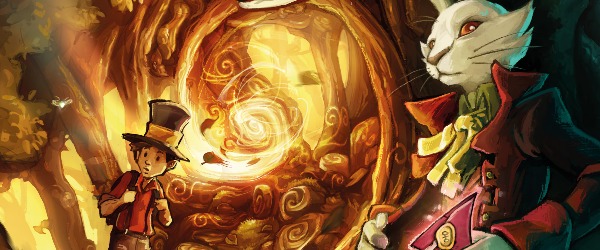
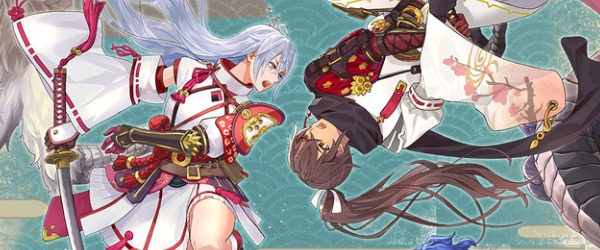
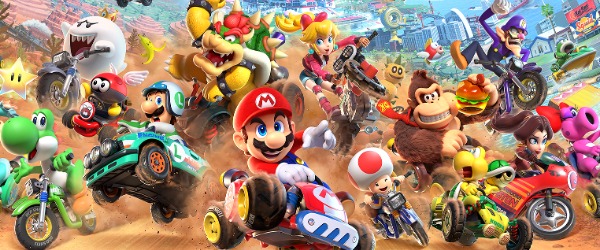
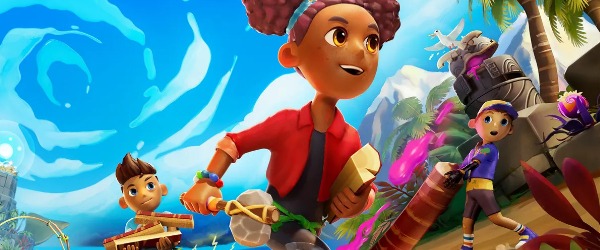













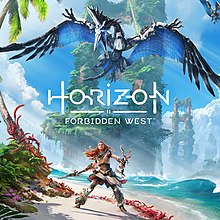



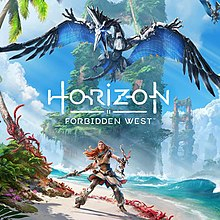

 Essay Pro
Essay Pro